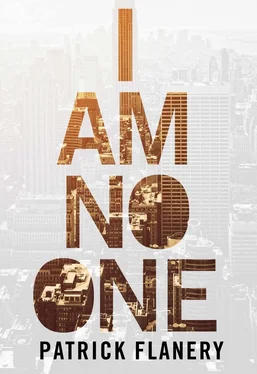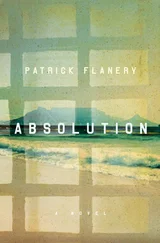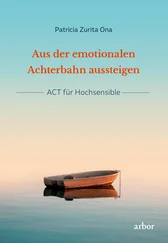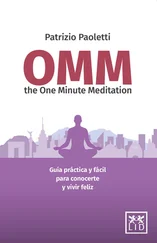‘Soon. He and his mother are planning a trip to New York.’
My mother’s eyes grow red. ‘That makes me so happy,’ she whispers.
‘I can’t make any promises.’
‘What does that mean?’
‘I can’t promise she’ll be willing to meet you.’
‘She doesn’t have a choice about it. I want to see my grandson.’
The rest of the day unfolds with such predictability that it is not in any meaningful way different from Thanksgiving’s gathering, although I recognize how, taken together, the two holiday parties mark a departure from my old life or lives, the years in Oxford being accountable as a life unto their own. This now feels like a distinct new stage, one that continues to evolve in unpredictable ways.
As I read the most recent issue of Peter’s magazine I contemplate outing myself to the nation, even the world, waking up one morning to find my face on the cover. My mother and ex-wife and daughter and son-in-law and my son-in-law’s parents circle one another, falling off into clusters of conversation. How would they be affected? Would all our lives become impossible?
From time to time Meredith disappears to check on the kitchen and returns to the living room looking so singularly unflustered that I wonder how Susan and I could ever claim responsibility for the person she has become. Her self-assurance is a quality she found on her own; we never modeled anything of the kind. How, in the face of such calm, can I possibly present what Ramsey has outlined? In revealing myself, making public all the minutiae of the last decade or more of my life (and I cannot be certain Ramsey does not have further reserves of secrets to reveal), I would also be revealing aspects of the lives of my family and friends and colleagues, and those who would potentially suffer most from the exposure are Meredith, my mother, and, of course, Fadia and Selim. Is it worth the loss not just of my own privacy (however illusory it may prove), but also of my family’s, merely to demonstrate to the world the extent and perniciousness of what our government is doing, or, more selfishly, to protect my own liberty? In the end, can I be certain beyond doubt that I have never done anything wrong? Am I whiter than white? Have I never strayed across the border of legality? Surely there is no one, anywhere, who is faultless.
Michael Ramsey leaves before I can speak to him again and I cannot help wondering where he will be on Christmas Day, whether he has a family in the city who cook for him or if he has returned to his office and is finding his nourishment by continuing to poke around in my life, or perhaps there is a girlfriend or boyfriend who will slave to make a turkey with all its accompaniments, or perhaps he is alone, in an apartment in Hoboken, eating Chinese takeout. No, I correct myself, I am certain he does not live in New Jersey. However he may have started in life, he is now a Manhattanite, one who can move with all the swiftness of mercury, element rather than god, the metal that measures temperature and just as easily poisons the well, making its victims crazy, emotionally labile, irritable, perhaps even paranoid. Has my own personal mercury made me mad as a hatter? And perhaps he is also my Mercury, my god of communication and messages, of trickery and thievery, perhaps even my conductor beyond this realm, to paradise or the underworld or whatever darkness awaits. If I were to believe in a god, I would have to choose Mercury, no other.
But must one do what a god commands?
Although I offered to send a car to meet them at JFK, Fadia declined, saying they would get a taxi, there was no telling how long the passport queue or baggage claim might take and she did not want me paying exorbitant waiting fees. I expected them late this afternoon, and as the hours passed my anxiety grew, the shortness of breath, the cold stab near my heart. I tried the cell number she had given me but there was no answer. I texted and emailed, received no reply, and then, at nearly ten this evening, as the city was already churning with its celebratory New Year’s mood, Ernesto rang the intercom to say they were downstairs.
For a week I have been imagining a new life with Fadia and Selim, envisioning the two of them established permanently in my apartment and half believing that the more clearly I see it the more likely it may become true. This is, I know, a particularly desperate variety of magical thinking. At first I picture us doing as Fadia suggested in her email, with no recommencement of our intimacy, but the longer she stays here I feel certain — I wish beyond logic or respect for whatever her own wishes might be — that she will look at me with greater affection, perhaps even love, and by such slow measures we will slip into being the family I confess to wanting since the moment she told me she was pregnant. So joined together in this way, as husband, wife, and child, all of the other issues, the problem of my uncertainty in the face of American law, must surely evaporate, for it would become clear to the authorities that Fadia poses no risk to anyone. Tracking her as I have been tracked, the intelligence agencies would see in her face and behavior that being related to Saif cannot possibly suggest anything about her own beliefs or loyalties.
As I stepped from the elevator I was aware of my own heartbeat, a vein pulsing in my foot, my hands gone cold. Fadia looked as she always has, a swirl of black coat, ivory scarf pulled up to cover her head, and there in her arms was our son, asleep, swaddled in white.
‘Your country, Jeremy,’ she sighed, rolling her eyes with a look of fatigue and exasperation. Without asking, she handed me Selim, who did not stir as she shifted him into my arms. He was plump without being fat, a healthy baby, his straight hair blond and yet dark at the roots, and on him I smelled that scent I had caught decades ago, during a warm spring day in Washington, DC, the aroma of an otherness that was at once strange and familiar, emanating from the boy who is now a man my age, a boy who, in my colander memory, might or might not have been called Amir, an Egyptian I assume later returned to his country, a boy from a good family like Fadia herself, a boy destined for public life as she herself might have been had she stayed. Who will Selim grow up to be? How, I thought in that moment, catching his scent, will I ever manage to let go of him? I will not do it willingly. I watched as Fadia managed the stroller and her suitcase, so practiced in her movements that I wondered if there had been other trips, to Paris or Cairo or who knew where else, trips that might have made the Department of Homeland Security look at her passport and wonder. What passports do they use? Egyptian? French? I still know nothing of such basic practicalities about her life.
‘My phone doesn’t seem to be working. Otherwise I would have called. I was interrogated for three hours at JFK. They took us into a little white room with no windows, and asked hundreds of questions, about my father and brother, about my uncle, what I was studying in Oxford, why I was coming here, how long I would be staying. At one point I didn’t think they were going to let me into the country, or, worse, I imagined we were going to disappear, or that Selim might be taken. For a moment I even considered you might have tipped off the authorities in advance, just to take him from me.’
‘I would never do that.’ But how simple a solution it would have been, I thought, to sacrifice Fadia for the sake of Selim.
‘No, I know that. I was exhausted and frightened. I told them I was coming to see you, that you were Selim’s father, but we weren’t married. I think they thought I was trying to stay here, and I said no, I showed the letter from College to prove I’m a full-time student, which seemed to satisfy them on that point at least. And a French passport is not without value, I guess. I demanded they let me phone the embassy and when they hesitated I started to panic and told them everything I know about Saif, which isn’t so much, although apparently he is on a list, maybe several different lists. I gathered this from the questions they were asking. So I decided total honesty would be more prudent than any hint of deception or resistance.’
Читать дальше












